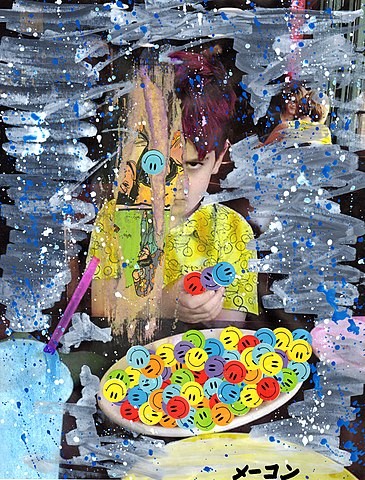Major Depressive Disorder (MDD), often referred to simply as depression, is a common and serious mental health condition characterized by persistent feelings of sadness, hopelessness, and a loss of interest or pleasure in daily activities. It can be disabling, but it is also highly treatable. Here’s an overview of MDD, including its causes, symptoms, and treatment options:
Causes of Major Depressive Disorder:
The exact cause of MDD is not fully understood, but it is believed to result from a combination of factors, including:
- Biological Factors: Imbalances in neurotransmitters (brain chemicals) like serotonin and norepinephrine can affect mood regulation.
- Genetic Factors: A family history of depression can increase the risk of developing MDD.

- Environmental Stressors: Traumatic events, chronic stress, or significant life changes can trigger depressive episodes.
- Medical Conditions: Certain medical conditions, such as chronic illness, hormonal imbalances, or chronic pain, can contribute to MDD.
- Psychological Factors: Low self-esteem, a history of trauma or abuse, and negative thinking patterns can increase vulnerability to MDD.
- Substance Abuse: Alcohol or drug use can exacerbate or lead to depression.
Common Symptoms of Major Depressive Disorder:
MDD is characterized by a range of emotional, cognitive, and physical symptoms. Common symptoms include:
- Persistent Sadness: Feeling persistently sad, down, or empty most of the day.
- Loss of Interest: Losing interest or pleasure in activities that were once enjoyable.
- Fatigue: Feeling tired, lacking energy, and experiencing physical and mental sluggishness.
- Changes in Sleep: Experiencing sleep disturbances, which can involve either insomnia or excessive sleeping.
- Appetite Changes: Changes in appetite, often resulting in weight loss or gain.
- Difficulty Concentrating: Trouble concentrating, making decisions, or remembering things.
- Feelings of Worthlessness: A sense of worthlessness, guilt, or self-blame.
- Physical Symptoms: Experiencing physical symptoms like headaches, aches, and digestive problems.
- Thoughts of Death or Suicide: Frequent thoughts of death, suicide, or self-harm.
Treatment for Major Depressive Disorder:
MDD is a treatable condition, and several therapeutic approaches are effective in managing its symptoms. These include:
- Psychotherapy: Cognitive-Behavioral Therapy (CBT), Interpersonal Therapy (IPT), and other forms of talk therapy can help individuals explore their thoughts, feelings, and behaviors and develop healthier coping strategies.
- Medication: Antidepressant medications, including selective serotonin reuptake inhibitors (SSRIs) and serotonin-norepinephrine reuptake inhibitors (SNRIs), are commonly prescribed to help regulate brain chemistry and improve mood.
- Electroconvulsive Therapy (ECT): ECT is used in severe cases when other treatments haven’t been effective. It involves administering controlled electric currents to the brain to induce a controlled seizure, which can alleviate symptoms.
- Transcranial Magnetic Stimulation (TMS): TMS is a non-invasive procedure that uses magnetic fields to stimulate nerve cells in the brain. It is used when other treatments have not worked.
- Lifestyle Modifications: Adopting a healthy lifestyle, including regular exercise, a balanced diet, and adequate sleep, can help manage symptoms.
- Social Support: Connecting with friends and family, as well as participating in support groups or social activities, can offer emotional support and reduce isolation.
- Self-Care: Engaging in self-care activities you enjoy, such as hobbies, reading, or spending time in nature, can provide emotional relief.
It’s crucial for individuals with MDD to seek professional help if they suspect they have the disorder. Early diagnosis and treatment can significantly improve their quality of life and help them better manage their symptoms. If you or someone you know is struggling with MDD, seeking professional help is a vital first step toward recovery.












